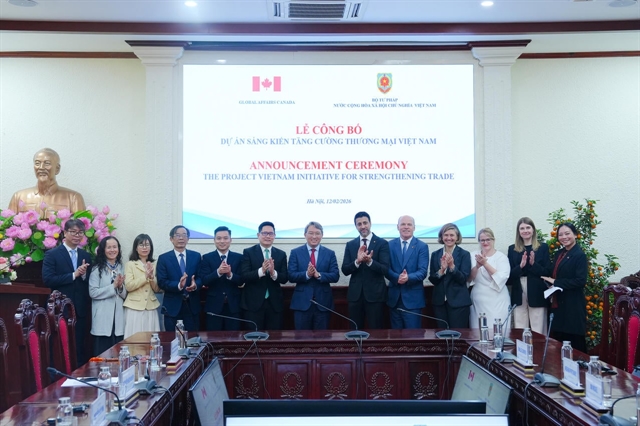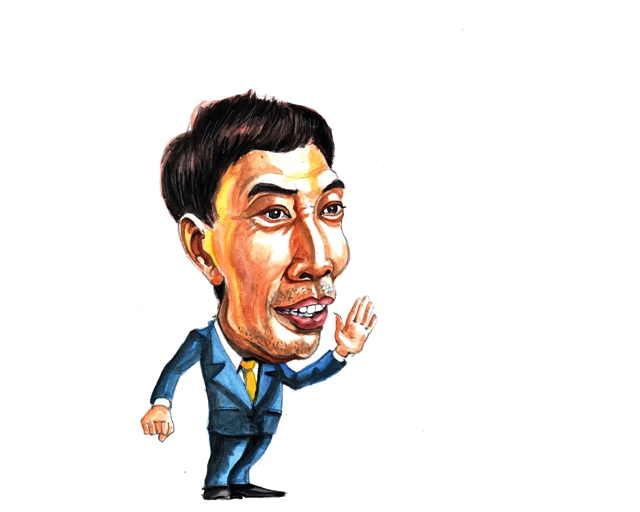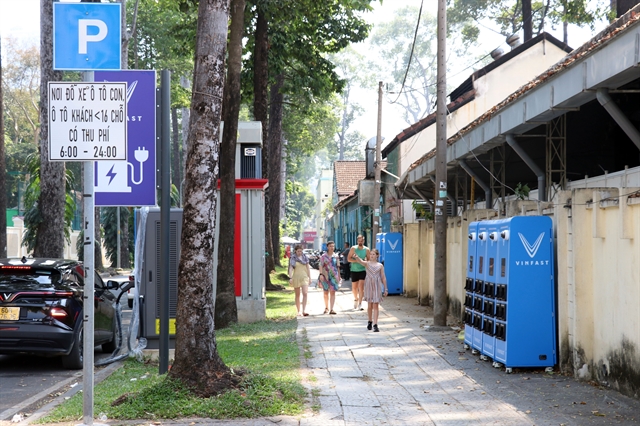 Economy
Economy


|
| Expert Võ Trí Thành |
Võ Trí Thành*
Just one day after the opening of the ongoing sixth plenary session of the 15th-tenure National Assembly, deputies spent time discussing a new salary regime for the public sector, which demonstrated how significant the long-awaited issue is.
The new salary regime is part of a bigger plan for comprehensive salary reform being drafted by the Government in accordance with Resolution No. 27-NQ/TW on reforming the country's wage policies adopted at the 7th plenum of the 12th Party Central Committee.
The new salary regime should have been implemented in 2021; however, it has been postponed due to the outbreak of the COVID-19 pandemic.
The policy reform, scheduled to be approved in this month-long session and to come into effect in July 2024, holds historical significance and will bring about joy for officials and public servants, according to Minister of Home Affairs Phạm Thị Thanh Trà.
In fact, Minister Trà has made a point.
Though Việt Nam has gone through four wage reforms and despite rapid economic growth over the past years, many public servants have still been struggling to live their lives due to low income and high daily expenses.
Under the current scheme, a base salary of VNĐ1.8 million (US$73.7) a month (applied since July this year) is a basis for calculating the salaries of employees in the State-run sector (cadres, public servants and armed forces) by multiplying it with their corresponding coefficient. For example, a new graduate entering the State sector will get a salary of level 1 with a coefficient of 2.34, equivalent to a monthly wage of VNĐ3.48 million.
The longer a public servant works, the higher salary he/she will get as the coefficient will rise every three years, regardless of their real capacity.
The scheme has somehow created unfair working conditions, which in turn is one of the factors that demotivate the young workforce from devoting themselves to their workplace.
For senior public servants, the low salary makes them resort to other sources of income (both legitimate and illegitimate), which negatively affects the productivity of the whole system as they are unable to focus on one job.
That also leads to a number of public servants who have taken advantage of their position to become corrupt or commit other serious violations of State regulations, weakening the State management apparatus.
Therefore, this 7th plenum of the 12th Central Party Committee raised the issue of the need for scientific and rigorous salary reform to serve as economic leverage and rejuvenate the strength of this workforce.

|
| Civil servants of the Lào Cai Province's Public Administration Service Centre support local people to complete administration procedures. Salary payment to cadres and public servants should be considered a kind of investment in human resources, which will be economically and socially beneficial in the long run.— VNA/VNS Photo Quốc Khánh |
Investment in human resources
The new scheme – "the most comprehensive and fundamental one," as Minister Trà said – is designed based on workers' positions and leadership titles, which will replace the current one applied since 2004.
It encompasses five distinct salary tables, including one based on position (applicable to officers, civil servants, and public employees in leadership roles, both elected and appointed, across the entire political system, from the central level to communes); one designed for civil servants and public employees who do not hold leadership positions; and three others tailored to meet the needs of the armed forces.
The new salary policy has been restructured to calculate the basic salary rate (70 per cent) and allowance rate (30 per cent). There will also be an additional bonus fund, equivalent to about 10 per cent of the total annual salary budget (excluding allowances), which will be used as awards for officials and civil servants who complete assigned tasks very well.
Salary payment to cadres and public servants should be considered a kind of investment in human resources, which will be economically and socially beneficial in the long run.
Socially, salary reform is one of the basic solutions to deal with the situation in which officials, civil servants, and workers from the public sector quit their jobs, moving from the public sector to the private sector. Looking broader, it will prevent the brain drain, which often leads to a shortage of talented and skilled employees in the country as they are able to seek better-paid jobs in developed nations.
According to the Fragile States Index 2021, the situation of brain drain in Việt Nam has improved in the five-year period since 2006, with a decline in the Human Flight and Brain Drain Index. However, the index is still worrying compared to other countries in the region.
When officials, civil servants, and public workers are more committed to their work, they will uphold their responsibility, thereby improving the quality of public services.
Economically, salary reform will create the driving force for economic growth.
The reform is expected to not only bring higher income to millions of civil servants and public employees, thereby stimulating their demand but also help lift productivity in the public sector and raise national competitiveness.
Concerns remain
However, one cannot say for sure that all the above-mentioned expectations will be met or the shortcomings of the old scheme are drastically addressed unless other measures are taken.
It should be highlighted that salaries are paid in accordance with work efficiency and labour productivity, and it is also necessary to ensure the principle that the growth rate of labour productivity must be faster than the average wage growth rate.
Government agencies should have a set of key performance indicators (KPIs) to review and assess the capacity of cadres and public servants based on the characteristics of the jobs. The private sector is often said to use their human resources more efficiently thanks to their KPIs. This will help improve the quality and professionalism of the workforce, and reduce the number of incompetent public servants. Along with that, more training plans should be studied and carried out to enhance public servants’ qualifications.
In addition, the apparatus of agencies must continue to be reshuffled and restructured in a streamlined, effective and efficient manner, with personnel downsizing which aims at reducing the number of people receiving salaries from the State. Reasonable restructuring will help create more resources to carry out wage reform.
In fact, personnel streamlining has been executed in recent years, which has contributed to the Government’s saving of VNĐ560 trillion for the wage reform from July 2024 to 2026. However, this sum is just enough for a short period while the wage reform is meant to last long. So, the Government will need to prepare a larger amount of funds to ensure the reform’s efficiency meets long-term expectations.
Pensions and allowances for individuals who have rendered meritorious services – which were previously calculated in line with the base salary – should also be taken into account.
Last but not least, lessons learned from raising wages in the past should be drawn. We have seen many times that when wages were not yet increased, prices had risen in advance. In other words, wages always "follow" prices. Therefore, the Government should have fundamental solutions to curb inflation and stabilise prices.
Now it is high time for the reform to be implemented as it is indeed an urgent matter. Hopefully, the reform will be a breakthrough measure to revitalise the public sector, contributing positively to the economy in the new period, and create a milestone in the country's development process.
*Võ Trí Thành is a senior economist at the Central Institute for Economic Management (CIEM) and a member of the National Financial and Monetary Policy Advisory Council. A doctorate in economics from the Australian National University, Thành mainly undertakes research and provides consultation on issues related to macroeconomic policies, trade liberalisation and international economic integration. Other areas of interest include institutional reforms and financial systems. He authors Việt Nam News column Analyst’s Pick.




